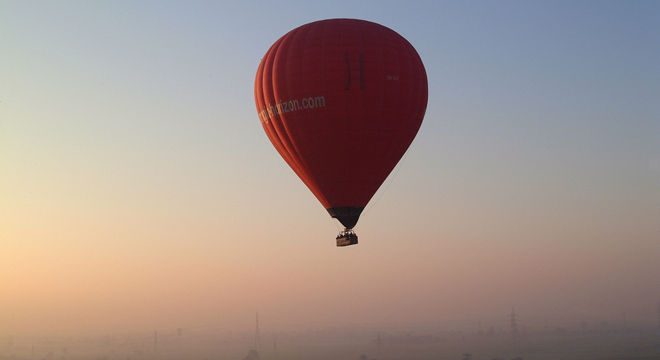LUXOR, Egypt (AP) — A hot air balloon flying over Egypt’s ancient city of Luxor caught fire and crashed into a sugar cane field on Tuesday, killing at least 18 foreign tourists, a security official said.
It was one of the worst accidents involving tourists in Egypt and likely to push the key tourism industry deeper into recession.
The casualties included French, British, Belgian, Hungarian, Japanese nationals and nine tourists from Hong Kong, Luxor Governor Ezzat Saad told reporters.
Three survivors of the crash — two British tourists and one Egyptian — were taken to a local hospital.
According to the Egyptian security official, the balloon carrying at least 20 tourists was flying over Luxor when it caught fire, which triggered an explosion in its gas canister, then plunged at least 300 meters (1,000 feet) from the sky.
It crashed into a sugar cane field outside al-Dhabaa village just west of Luxor, 510 kilometers (320 miles) south of Cairo, said the official, speaking on condition of anonymity because he was not authorized to talk to the media.
Bodies of the dead tourists were scattered across the field around the remnants of the balloon. An Associated Press reporter at the crash site counted eight bodies as they were put into body bags and taken away. The security official said all 18 bodies have been recovered.
The official said foul play has been ruled out. He also said initial reports of 19 dead were revised to 18 as confusion is common in the aftermath of such accidents.
Egypt’s civil aviation minister, Wael el-Maadawi, flew to Luxor to lead the investigation into the crash.
The head of Japan Travel Bureau’s Egypt branch, Atsushi Imaeda, confirmed that four Japanese died in the crash. He said two were a couple in their 60s from Tokyo. Details on the other two were not immediately available.
In Hong Kong, a travel agency said nine of the tourists that were aboard the balloon were natives of the semiautonomous Chinese city. There was a “very big chance that all nine have perished,” said Raymond Ng, a spokesman for the agency. The nine, he said, included five women and four men from three families.
They were traveling with six other Hong Kong residents on a 10-day tour of Egypt.
Ng said an escort of the nine tourists watched the balloon from the ground catching fire around 7 a.m. and plunging to the ground two minutes later.
In Britain, tour operator Thomas Cook confirmed that two British tourists were dead and two were in hospital.
“What happened in Luxor this morning is a terrible tragedy and the thoughts of everyone in Thomas Cook are with our guests, their family and friends,” said Peter Fankhauser, CEO of Thomas Cook UK & Continental Europe.
“We have a very experienced team in resort with the two guests in the local hospital, and we’re providing our full support to the family and friends of the deceased at this difficult time,” he said.
In Paris, a diplomatic official said French tourists were among those involved in the accident, but would give no details on how many, or whether French citizens were among those killed.
Speaking on condition of anonymity because he wasn’t authorized to be publicly named according to government policy, the official said French authorities were working with their Egyptian counterparts to clarify what happened. French media reports said two French tourists were among the dead but the official wouldn’t confirm that.
Hot air ballooning, usually at sunrise over the famed Karnak and Luxor temples as well as the Valley of the Kings, is a popular pastime for tourists visiting the area.
The site of the accident has seen past crashes. In 2009, 16 tourists were injured when their balloon struck a cellphone transmission tower. A year earlier, seven tourists were injured in a similar crash.
Egypt’s tourism industry has been decimated since the 18-day uprising in 2011 against autocrat leader Hosni Mubarak and the political turmoil that followed and continues to this day.
Luxor’s hotels are currently about 25 percent full in what is supposed to be the peak of the winter season.
Scared off by the political turmoil and tenuous security that has followed the uprising, the number of tourists coming to Egypt fell to 9.8 million in 2011 from 14.7 million the year before, and revenues plunged 30 percent to $8.8 billion.
Poverty swelled at the country’s fastest rate in Luxor, which is highly dependent on visitors to its monumental temples and the tombs of King Tutankhamun and other pharaohs. In 2011, 39 percent of its population lived on less than $1 a day, compared to 18 percent in 2009, according to government figures.
___
Associated Press writers Kelvin Chan in Hong Kong, Jill Lawless in London and Angela Charlton in Paris contributed to this report.









